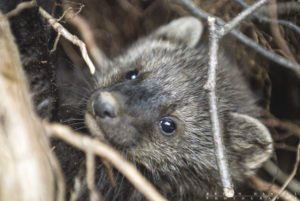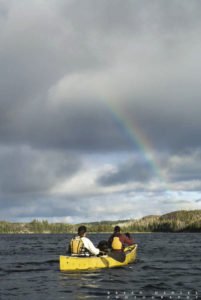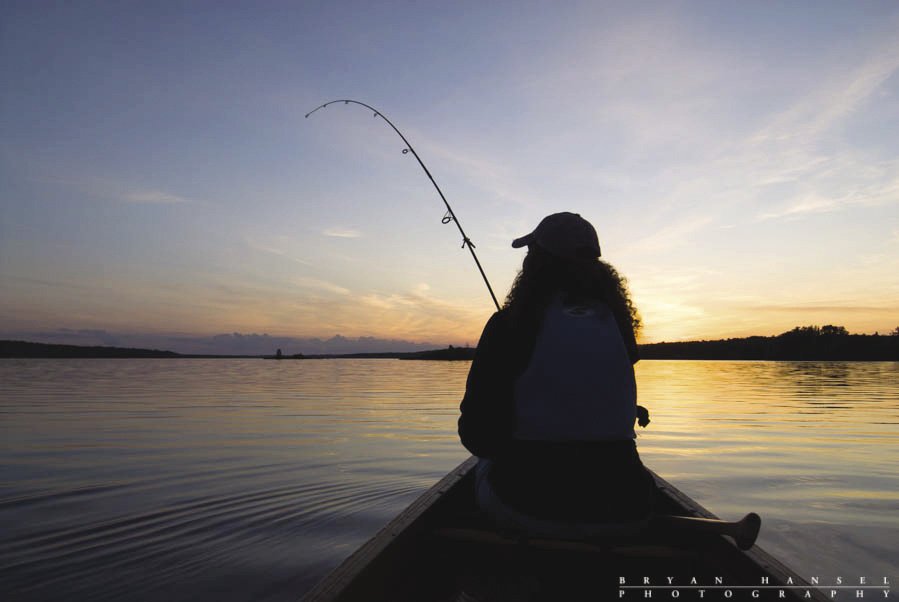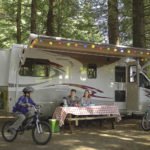By Bryan Hansel
The Boundary Waters Canoe Area Wilderness (BWCAW) is primarily used by canoeists taking a canoe camping trip, but that isn’t the only way to experience this gem of the north. Day trips by canoe, kayak or foot can bring you to beautiful locations without the worry of having to set up camp each night. Ely, Tofte and the Gunflint Trail have a different feel, so if you really want to experience the Boundary Waters, you should plan to try each of these day trips.
Gunflint Trail
Johnson Falls via East Bearskin: Start this trip at the East Bearskin entry point about 26 miles up the Gunflint from Grand Marais. This part of the Boundary Waters feels different from the rest, because east-west hills separate the lakes. Paddling here feels like paddling through mountainous terrain. From East Bearskin canoe to Little Alder, Alder and Canoe Lake. Portages, where you carry your canoe and gear from one lake to the next, separate the lakes. At Canoe Lake, find the portage to Pine Lake, which also takes you to Johnson Falls, one of the most picturesque waterfalls in the BWCAW.

Magnetic Rock: Follow the Gunflint Trail north from Grand Marais for 47 miles to the Magnetic Rock parking lot. The hiking trails winds its way 1.5 miles through an area burned by the 2007 Ham Lake fire to Magnetic Rock, a rock that looks like the obelisk from the movie 2001. Along the way, take in views of granite-filled valleys in an area that usually is covered in a dense mass of Boreal forest. Bring a magnet and compass to amuse yourself. Your magnet will stick to the rock, and your compass needle will point towards it.
Tofte Area
Brule Lake: Stretching eight miles from end to end, the Brule is one of the largest lakes in the BWCAW. Because it’s so large, it’s best to use sea kayaks which can handle the big waves that the prevailing strong afternoon winds generate. The extra speed of sea kayaks also allows you to reach the portage to Cam Lake in a casual day. Cam Lake at the northwestern corner of the lake looks like a meteor crater. At the portage, hike to the lake, eat lunch and then hike back to your kayaks and paddle back to the entry point.
Kelso River Loop: The Kelso River Loop, also known locally as the voyage to the Viking dolman, starts on Sawbill Lake at the end of the Sawbill Trail. Paddle from Sawbill Lake to the Kelso River and Kelso Lake. At Kelso Lake, search the eastern shore to find the Viking dolman, a kitchen-table-sized rock balanced on three small stones. Some local guides claim Vikings carved runes into the stone. After finding the dolman, canoe to Alton Lake and then portage back into Sawbill.

Ely Area
Hegman Pictographs: Follow the Echo Trail north to the parking lot for South Hegman Lake. Hike the 80-rod portage from the parking lot to the lake and then canoe north and portage into North Hegman. Follow the western shore past an island. The bright red pictographs are on a granite cliff near the point where the lake turns into a bottle neck. The most distinct paintings look like a moose, lynx and a human. Don’t touch the paintings, as oil from your skin could cause them to deteriorate.
Lake One: Lake One makes for an easy day of exploration. Launch your canoe from the entry point at the end of Fernberg Road, poke around Lake One’s many bays, and paddle past headlands. The center of the lake is dotted with islands to explore, and the campsites make great places to stop for lunch. There’s great fishing and wildlife viewing all around, especially in the bays. If you’re feeling motivated, you can portage and explore Lakes Two through Four.
Permits
You need a permit to do any trip into the BWCAW. Luckily for day trippers, you only need to register your trip on a self-issuing permit. Look for a permit box at the parking lot, fill out the permit, leave the government’s side in the box and take your half with you.



